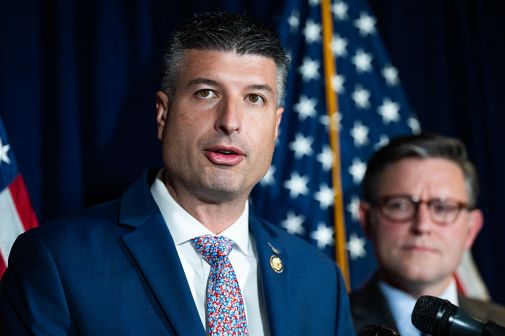Senate spending bill ties full VA EHR funding to updated timeline, cost estimates

The Senate package to reopen the government places a caveat on funding for the Department of Veterans Affairs’ Electronic Health Record system, putting new pressure on the agency to resolve its yearslong challenges with the rollout.
The Senate bill to fund the VA through fiscal 2026 would dish out $3.4 billion for the EHR rollout, but the full amount is contingent on the agency updating Congress on the revised timeline and cost estimates.
The provision, tucked into the 394-page spending package, would withhold 30% of the funding until July of next year and gives the agency secretary until June 1 to hand over the requested information.
This information includes an updated life-cycle cost estimate for the EHR Modernization program, based on the VA’s announcement earlier this year to accelerate deployments in nine facilities. The Senate also requested a facility-by-facility deployment schedule for all facilities expected to receive the EHRM program, along with the projected federal VA staffing levels and required resources.
The secretary is also expected to certify that all VA facilities using the EHR have exceeded or met health care performance metrics and certify that the department has at least four consecutive, successful site deployments without delays or patient harm. It comes after Senate staff was informed in 2023 that the rollout of the EHR system was linked to six cases of “catastrophic harm,” including four deaths. Later that year, the Biden administration paused the EHR rollout.
The EHR system, hosted by cloud technology company Oracle, has faced numerous technical problems since its launch during the first Trump administration. According to the VA’s March announcement, the system is slated to be deployed at 13 medical facilities by 2026.
Earlier this year, the Government Accountability Office issued a report finding the VA has made “incremental improvements” in its system, but needs an updated cost estimate and schedule.
A Joint Explanatory Statement (JES) accompanying the bill states the Senate also expects the agency to “hold its contractors accountable.”
“The Department is expected to work closely with Oracle Cerner to resolve usability problems and dramatically improve training to ensure that when deployments restart, the new system can be adopted easily by clinicians and healthcare staff,” the statement said.
Lawmakers said that while the agreement is “encouraged” by recent deployment efforts, “Congress remains vigilant of potential usability problems that have led to or contributed to instances of patient harm and reduced employee productivity.”
Oracle declined to comment on the statement, and the VA did not respond to a request for comment by the time of publication.
Lawmakers have continued to press the VA on the troubled EHR rollout over the years. Earlier this year, VA Secretary Doug Collins tried to ease lawmakers’ concerns over how the agency will continue to deliver health tech services amid the major workforce cuts.
Collins told lawmakers in June that the VA is moving forward with modernization efforts despite past delays and is also working on the rollout of its External Provider Scheduling tool.
The acceleration of the VA’s EHRM effort appears to be a priority for the Trump administration. The White House’s fiscal 2026 “skinny” budget proposal, released in May, called for a $2.17 billion jump in funding for the effort.






